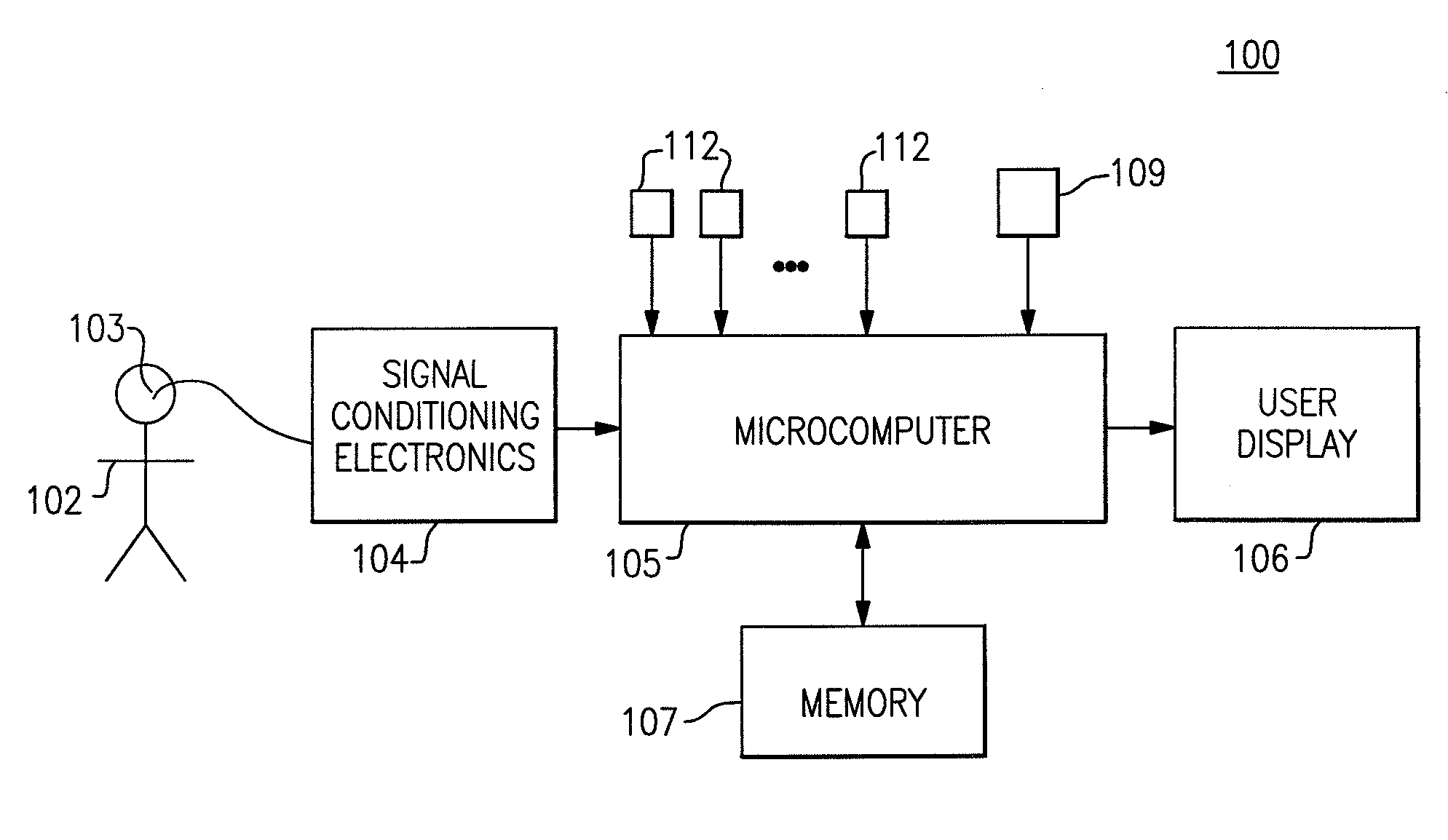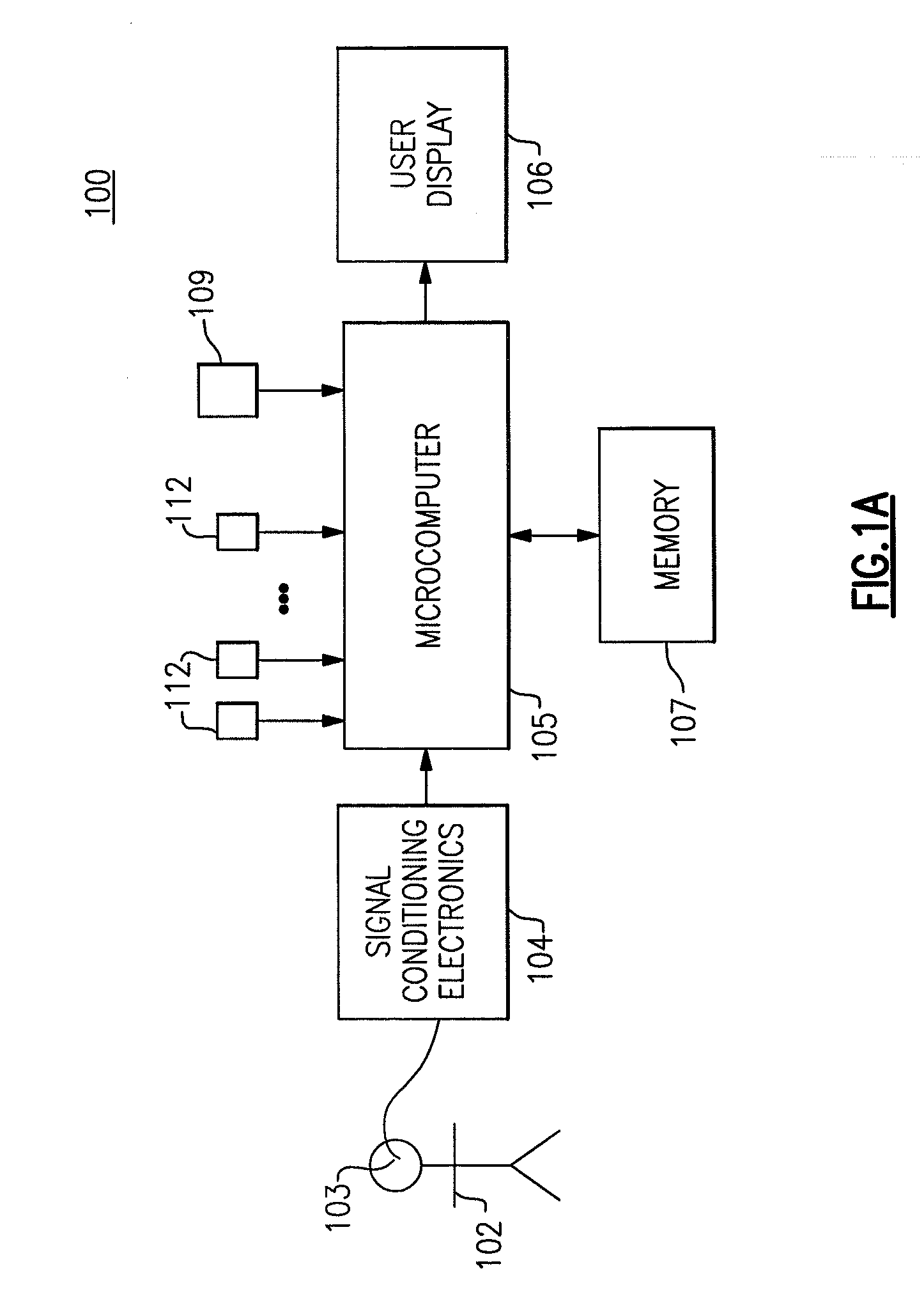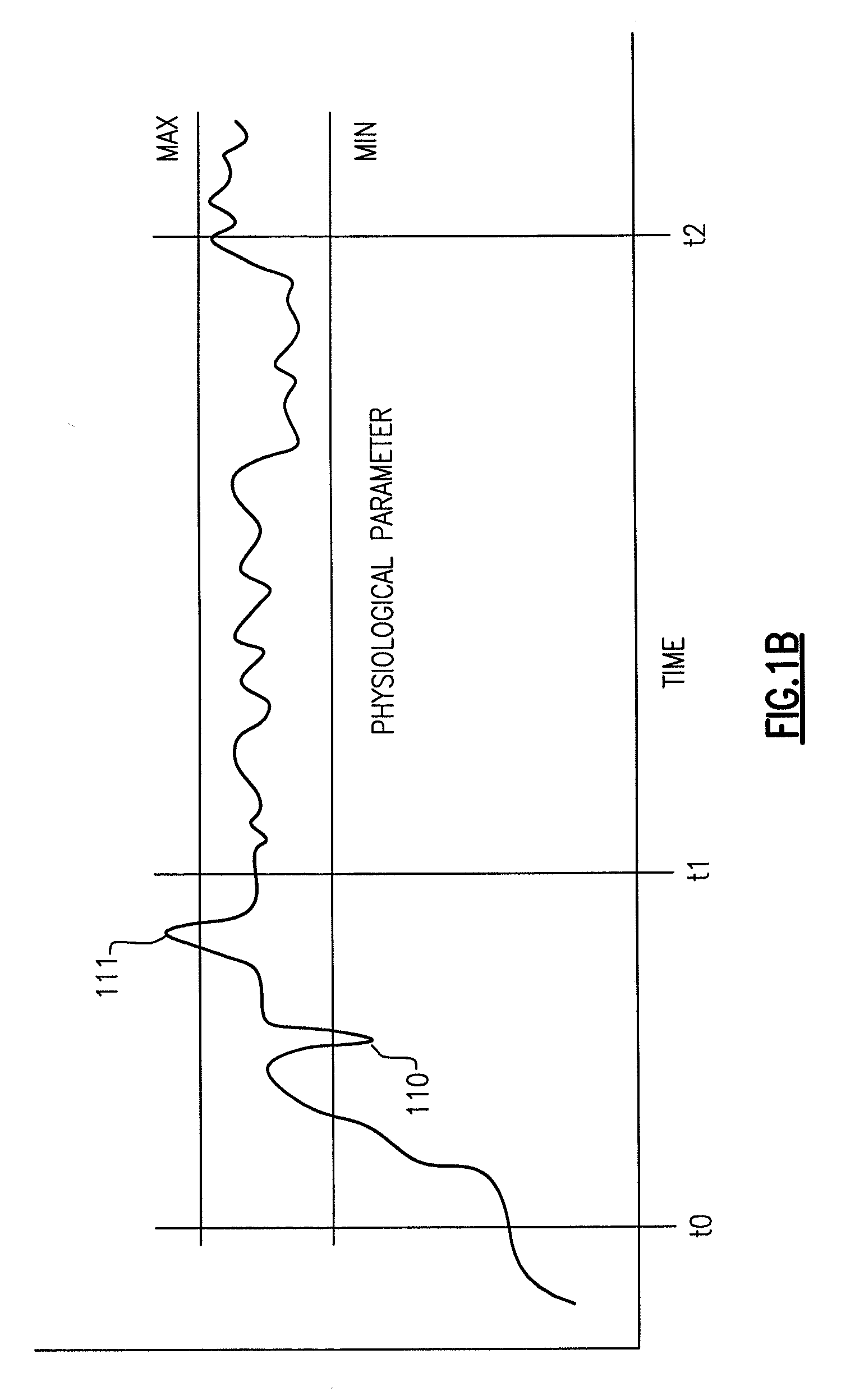On demand help/in-service for a medical device
a medical device and on-demand technology, applied in the field of medical equipment, can solve the problems of clinician operator error, especially problematic medical equipment operator error, and clinician's lack of understanding
- Summary
- Abstract
- Description
- Claims
- Application Information
AI Technical Summary
Benefits of technology
Problems solved by technology
Method used
Image
Examples
example 1
[0083]Medical equipment including a thermometer probe supplied in a thermometer probe well incorporates a timed task help scheme as illustrated by the flow chart of FIG. 8. The equipment is set to a temperature measurement mode suitable for making an oral temperature measurement. The operator removes the temperature probe from the thermometer probe well. The operator then incorrectly places the temperature probe in a person's mouth, far from the proper placement in a sublingual pocket of the mouth. The medical equipment reaches a pre-programed time of 30 seconds without achieving a usable temperature measurement. The temperature measurements are varying too much in time to present a valid measurement and / or are too low to represent a valid oral temperature measurement. The medical equipment presents an offer of assistance. An exemplary help display can show an image of an oral thermometer probe correctly placed in a sublingual pocket. The image can flash one or more times to draw at...
example 2
[0086]An SPO2 probe, pulse oximetry probe has been properly placed on a person's finger and is producing valid usable SPO2 measurements. However, if the probe is left in place on the person's finger in the same position for a long period of time, there can be skin burn, or some breakdown of the skin. The medical equipment monitor, as illustrated in the flow chart of FIG. 9, can begin a long term timer when the SpO2 probe is first placed. After a pre-set period of time, the monitor displays an assistance message noting the time the SpO2 probe has been in place and suggesting movement of the SpO2 probe to another finger to avoid skin damage.
[0087]An elapsed time based in-service help scheme can also be useful for detecting potential operator errors related to medical equipment alarms. When medical equipment alarms sound too often or for conditions not requiring immediate attention in a given situation the alarms can become a nuisance. Another problem related to “false” alarms is that ...
example 3
[0099]FIG. 3A shows one exemplary embodiment of a thermometer 300 as a medical instrument 100 configured according to the invention. In one embodiment, as further illustrated by the flowchart of FIG. 10, thermometer 300 can include a help button 301. Pressing help button 301 in the context of a temperature measurement can cause a view of a lower human mouth to be shown on display 106 in FIG. 3B. The exemplary image of a lower human mouth can show proper placement of a temperature sensor 103 in the sublingual pocket 302 of a mouth with respect to a lower row of teeth 303. Following a review of the image and correct placement of temperature probe 103 in a person's mouth, an operator can read a temperature measurement (FIG. 3B) by pressing measure button 109.
[0100]In another embodiment of the invention as shown in FIG. 3A, embedded microcomputer 105 (FIG. 1A) can be running software that analyzes temperature versus time. On detecting anomalous readings that suggest a clinician operator...
PUM
 Login to View More
Login to View More Abstract
Description
Claims
Application Information
 Login to View More
Login to View More - R&D
- Intellectual Property
- Life Sciences
- Materials
- Tech Scout
- Unparalleled Data Quality
- Higher Quality Content
- 60% Fewer Hallucinations
Browse by: Latest US Patents, China's latest patents, Technical Efficacy Thesaurus, Application Domain, Technology Topic, Popular Technical Reports.
© 2025 PatSnap. All rights reserved.Legal|Privacy policy|Modern Slavery Act Transparency Statement|Sitemap|About US| Contact US: help@patsnap.com



